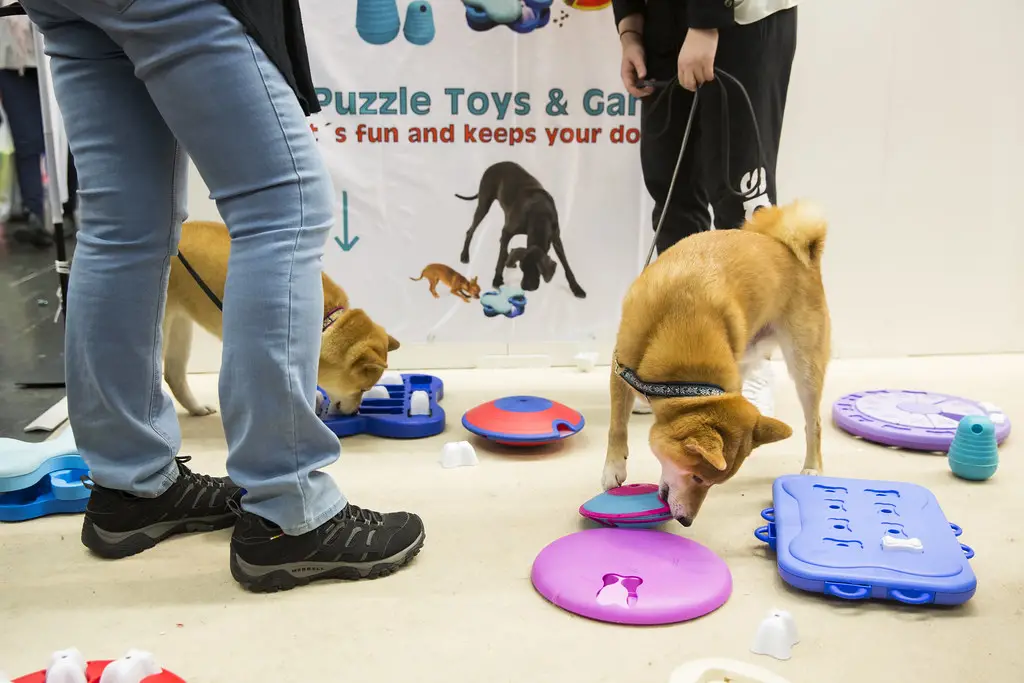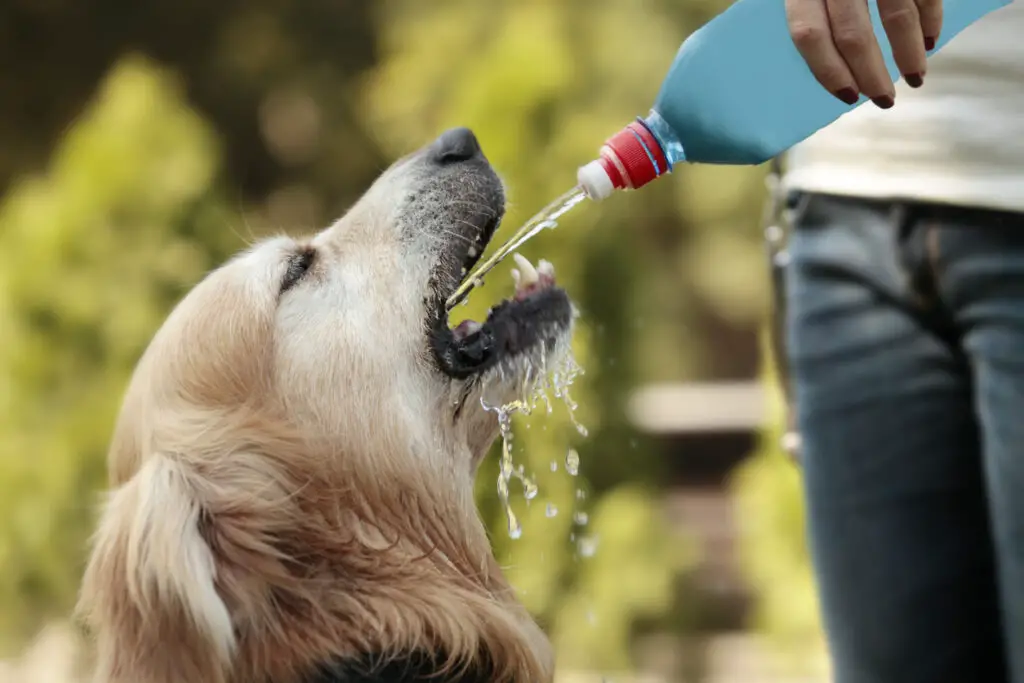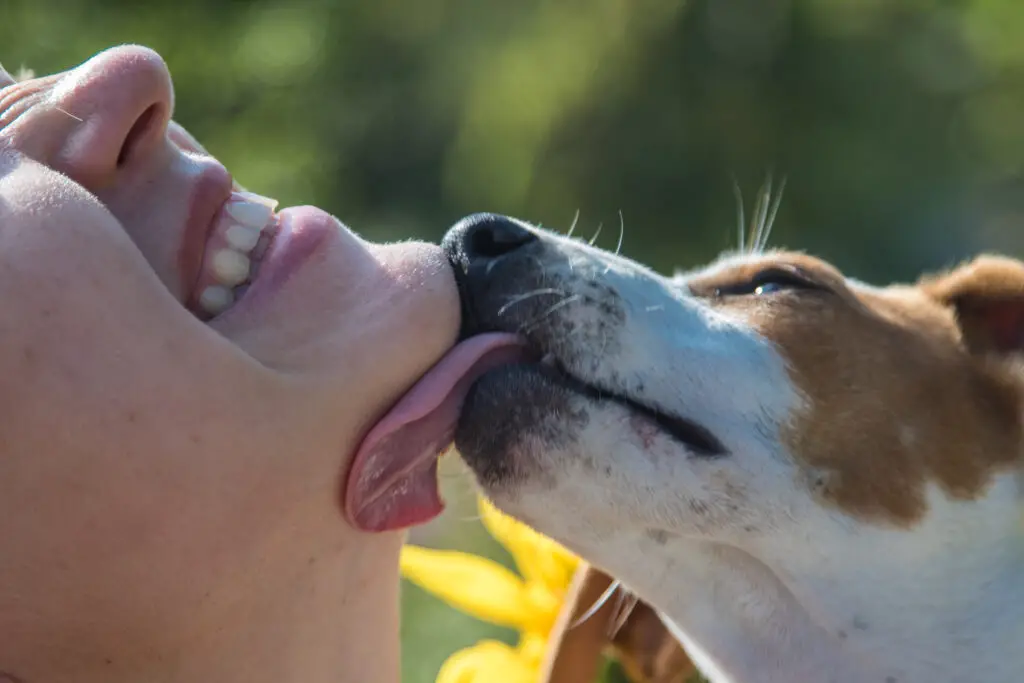1. The Science of Habit Formation—Why 30 Days is the Sweet Spot

Scientific research on habit formation explains why 30-day challenges work so well. The human brain operates through neural pathways, which strengthen each time you repeat an action. Initially, starting a new habit feels difficult because your brain is working against existing routines, according to HealthLine. However, studies have found that after 30 days of consistent repetition, behaviors become more automatic, making them easier to sustain. This is due to a process called myelination, where nerve fibers strengthen and speed up signals in the brain, making new habits more deeply ingrained.
But habit formation isn’t just a human experience—pets also develop habits through routine, repetition, and reinforcement. When you introduce a 30-day challenge that involves training, exercise, or bonding time, your pet’s brain also adapts and learns to anticipate these activities, leading to faster learning and greater enthusiasm. Dogs and cats, in particular, are creatures of routine, and when they know what to expect each day, they feel more secure, confident, and engaged. Over a month, the combination of consistency, positive reinforcement, and mutual commitment strengthens not only the new habits but also the trust between you and your pet.
2. Strengthening Your Bond—The Psychology of Connection with Your Pet

One of the most profound transformations in a 30-day challenge is the strengthening of the human-animal bond. According to AVMA, scientific studies show that interacting with pets releases oxytocin, the same hormone responsible for deep social bonds between humans, such as between parents and children. When you engage in consistent, focused activities with your pet—whether it’s training, playtime, or simple daily routines—you reinforce this connection, making your pet feel safer, happier, and more attached to you.
Beyond emotional bonding, 30-day challenges help build trust and mutual understanding. Pets are highly perceptive and respond to the tone, energy, and consistency of their human caregivers. When you show up daily for a structured challenge, whether it’s an obedience challenge, a walking challenge, or a playtime challenge, your pet learns that they can rely on you, reducing stress and anxiety. This is especially important for rescue animals or pets with past trauma, as predictable routines help them rebuild their sense of security. The result? A deeper, more intuitive connection that makes life together more fulfilling.
3. The Fitness Transformation—How 30 Days of Exercise Benefits You and Your Pet

A 30-day fitness challenge with your pet can have life-changing effects on both of you. Exercise has been proven to increase lifespan, reduce stress, improve cardiovascular health, and boost energy levels in humans, and the same applies to pets. Studies show that dogs who engage in daily physical activity is less likely to develop obesity, arthritis, and heart disease. Cats also benefit from structured exercise, as it reduces anxiety, prevents weight gain, and improves agility.
However, the benefits extend beyond just physical health. Exercise releases endorphins, chemicals in the brain that enhance mood and reduce stress. Pets, especially dogs, need an outlet for their energy, and when they don’t get it, they often develop destructive behaviors like chewing, excessive barking, or restlessness. Over a 30-day challenge, you’ll start to notice changes—not just in fitness but in behavior, mood, and overall happiness. By the end, both you and your pet will likely feel more active, healthier, and more connected than ever before.
4. Training Mastery—Unlocking Your Pet’s Full Potential in 30 Days

Training a pet requires patience, consistency, and repetition, which is exactly why a 30-day challenge is the perfect timeframe to teach new skills according to K9 principles. Research shows that dogs and other animals learn best through short, frequent training sessions, and when training is reinforced daily, it creates lasting behavioral changes. The key is to focus on one or two skills at a time, whether it’s leash training, recall commands, or reducing excessive barking.
For pet owners, the challenge is just as beneficial. Training teaches discipline, communication, and leadership, helping you become a more confident and effective pet owner. Many people start training their pets but fail to follow through due to inconsistency. A 30-day challenge removes that obstacle by forcing you to stick to a structured plan, leading to significant progress in just a month. By the end, both you and your pet will have developed better habits, stronger discipline, and a deeper understanding of each other’s cues.
5. Nutrition Reset—Transforming Health Through a 30-Day Food Challenge

Diet is one of the most overlooked but most important aspects of a pet’s well-being. Just like in humans, nutrition directly affects energy levels, immune function, skin health, and lifespan. A 30-day nutrition challenge—whether it’s transitioning to a more natural diet, introducing healthier treats, or eliminating processed pet food—can have dramatic health benefits. Research shows that fresh, minimally processed food can reduce inflammation, prevent chronic diseases, and improve digestion in animals.
One of the best parts of a nutrition challenge is that pet owners often benefit just as much. Many people who embark on a 30-day health reset with their pets—cutting out processed foods, increasing hydration, and focusing on whole ingredients—find that they feel better, have more energy, and even lose weight. By the end of the challenge, you’ll likely notice shinier fur, better digestion, increased energy, and a happier demeanor in your pet, making it one of the most rewarding transformations you can undertake together.
6. Mental Stimulation Challenges—Keeping Your Pet’s Brain Sharp and Engaged

Just like humans, pets need mental stimulation to stay sharp, engaged, and happy, according to Hindustan Times. A 30-day mental enrichment challenge can significantly improve cognitive function, reduce boredom, and prevent behavioral problems caused by lack of stimulation. Studies show that dogs and cats who regularly engage in problem-solving activities experience lower levels of anxiety and frustration, making them overall better-behaved and more emotionally balanced. Activities such as puzzle toys, scent games, and interactive training sessions help stimulate their brains and encourage natural instincts like hunting, foraging, and problem-solving.
Over 30 days, consistently providing brain-engaging activities can transform your pet’s focus, patience, and adaptability. Many pet owners notice that after introducing these challenges, their pets become more engaged in daily life, more eager to learn, and less likely to display destructive behaviors. Dogs that once chewed furniture out of boredom may now spend time figuring out treat dispenser puzzles instead, while cats that used to claw at curtains might enjoy interactive play sessions with feather wands. By the end of the month, your pet will have a sharper mind, improved patience, and a newfound eagerness to engage with the world around them.
7. Socialization Challenges—Helping Your Pet Build Confidence Around Others

Socialization is one of the most crucial aspects of a pet’s development, and a 30-day socialization challenge can dramatically improve their confidence and behavior around new people, animals, and environments, according to All Pets Education and Training. Scientific studies show that animals who are regularly socialized from a young age experience lower stress levels in unfamiliar situations. This is because socialization helps them build positive associations with new experiences, preventing fear-based aggression or anxiety. Whether your pet is a puppy, an adult rescue, or a naturally shy animal, daily exposure to new places, people, and safe encounters with other animals can help them become calmer, more adaptable, and well-mannered.
By gradually introducing your pet to different environments, sounds, and interactions over 30 days, you’re helping them develop emotional resilience and trust in their surroundings. Many dogs who participate in these challenges go from being anxious in public spaces to confidently walking through parks and busy streets. Cats that previously hid from visitors may start feeling more comfortable exploring when guests are around. By the end of the month, your pet will have more confidence, improved behavior in social settings, and a greater ability to handle new experiences without fear.
8. Sleep Optimization Challenge—Improving Rest for You and Your Pet

Quality sleep is just as important for pets as it is for humans, and a 30-day sleep optimization challenge can lead to improved health, better mood, and more balanced behavior. Studies show that dogs and cats need between 12 to 16 hours of sleep per day, depending on their age and activity levels. However, many pets suffer from poor sleep due to inconsistent routines, environmental disturbances, or lack of nighttime comfort. If your pet frequently wakes up at night, struggles to settle down, or appears restless, optimizing their sleep routine over 30 days can have dramatic effects on their overall well-being.
Making small adjustments—such as establishing a consistent bedtime, reducing noise at night, ensuring a comfortable sleeping space, and limiting late-night stimulation—can lead to better quality sleep for both you and your pet. Just as sleep-deprived humans experience irritability and fatigue, pets who don’t get enough sleep can become more anxious, hyperactive, or easily agitated. By the end of the 30 days, your pet will have a more stable sleep cycle, improved energy during the day, and a better ability to self-regulate their rest—and you’ll likely enjoy more peaceful nights as well.
Click here for more stories like this
9. Water Intake Challenge—Ensuring Hydration for Optimal Health

Proper hydration is often overlooked but is essential for a pet’s overall health and longevity. A 30-day hydration challenge can help correct dehydration habits and ensure that your pet is consistently drinking enough water for optimal organ function, digestion, and energy levels. Studies show that many cats and dogs do not drink enough water daily, which can lead to urinary tract issues, kidney disease, and overall sluggishness. Some pets are picky about their water sources, and many owners are unaware that simple changes—like providing filtered water, using water fountains, or adding moisture to food—can significantly increase their pet’s hydration levels.
By tracking your pet’s water intake daily and making gradual improvements over 30 days, you can prevent serious health issues while increasing their energy, alertness, and overall vitality. Many pet owners who take on this challenge notice shinier coats, better digestion, and improved kidney health in their pets. If you participate in this challenge alongside your pet—by improving your own water intake as well—you might find yourself feeling more energized, less fatigued, and experiencing improved skin and digestion. This challenge is an easy but highly beneficial one that creates long-term health improvements for both pet and owner.
10. Stress Reduction Challenge—Calming Anxiety for You and Your Pet

Stress affects both humans and pets, and a 30-day stress reduction challenge can significantly improve emotional well-being, reduce anxiety, and create a more relaxed living environment. Scientific studies have shown that pets mirror their owners’ stress levels, meaning that an anxious pet parent often leads to an anxious pet. If you or your pet experience frequent restlessness, nervousness, or signs of anxiety, a structured challenge focusing on daily relaxation techniques, mindfulness, and calming activities can lead to remarkable improvements in mood and behavior.
Simple changes, such as establishing a quiet relaxation time, incorporating soothing scents like lavender, using gentle pet massage techniques, or practicing deep-breathing exercises together, can create a more peaceful atmosphere at home. Pets who experience separation anxiety or noise sensitivity may show significant improvement by the end of the challenge, becoming calmer and more adaptable in stressful situations. You, too, might notice lower cortisol levels, reduced tension, and a greater sense of inner peace as you commit to a daily stress-reduction routine alongside your pet.
11. Grooming Challenge—Enhancing Your Pet’s Hygiene and Comfort

A 30-day grooming challenge can lead to healthier skin, a shinier coat, and an overall happier pet. Regular grooming isn’t just about appearances—it’s essential for preventing infections, detecting health issues early, and improving comfort. Many pets experience skin irritation, matted fur, or overgrown nails because their grooming needs are overlooked. Scientific studies show that grooming also reduces stress by triggering a calming response in pets, making it a great bonding activity as well.
Over 30 days, incorporating a structured grooming routine—including brushing, bathing, nail trimming, and ear cleaning—can drastically improve your pet’s hygiene and comfort. Many pets that were previously nervous about grooming sessions become more comfortable and cooperative when it becomes a consistent, positive experience. Additionally, this challenge allows you to monitor your pet’s skin, coat, and overall health more closely, ensuring that any potential issues are caught early before they become major concerns. By the end of the challenge, your pet will look, feel, and smell better, and grooming will feel like a natural and enjoyable part of your routine.
12. The Playtime Challenge—Reigniting Fun and Strengthening Bonds with Your Pet

Playtime is often seen as just a fun activity, but it is actually crucial for a pet’s mental, emotional, and physical well-being. A 30-day playtime challenge can help prevent boredom-related behavioral issues, improve coordination, and enhance social skills in pets while also offering a fantastic bonding experience with their owner. Studies have shown that play is not only essential for puppies and kittens but is equally important for adult and senior pets, helping them stay sharp, agile, and emotionally balanced. Dogs, for example, use play to practice their natural instincts—chasing, retrieving, and problem-solving—while cats need play to simulate hunting behaviors, which keep them mentally stimulated and physically fit.
By dedicating at least 20–30 minutes of focused playtime every day for 30 days, you can significantly improve your pet’s mood, reduce stress, and increase their engagement with you. Many pet owners find that once they start consistently incorporating play into their daily routine, their pet’s behavior changes for the better—restlessness decreases, destructive tendencies lessen, and obedience improves. This challenge can also be a great opportunity to introduce new toys, experiment with different types of interactive games, and find out what truly excites your pet. By the end of the month, both you and your pet will likely have more energy, a stronger connection, and a renewed sense of joy in everyday life.
13. The Gratitude Challenge—Cultivating Appreciation for Your Pet and Deepening Your Connection

Gratitude isn’t just a human practice—it can also transform the way we interact with and care for our pets. A 30-day gratitude challenge focused on your pet can help you become more mindful of their presence, appreciate the small joys they bring, and strengthen your emotional connection with them. Research shows that practicing gratitude daily can rewire the brain for increased happiness and emotional resilience, and when applied to pet ownership, it can lead to a deeper, more intentional relationship. Too often, we get caught up in the routine of feeding, walking, and cleaning up after our pets without taking the time to truly appreciate their companionship and the unconditional love they offer.
By spending 30 days actively acknowledging and expressing gratitude for your pet, you’ll begin to notice positive changes in both yourself and your furry companion. This challenge can include writing down something you love about your pet each day, setting aside moments to simply enjoy their presence without distractions, or even speaking words of appreciation to them in a soothing tone—which has been scientifically proven to increase oxytocin levels in both pets and humans. Many pet owners find that by the end of this challenge, they feel a greater sense of emotional fulfillment, a stronger connection with their pet, and a renewed understanding of the joy that comes from sharing life with an animal companion.


